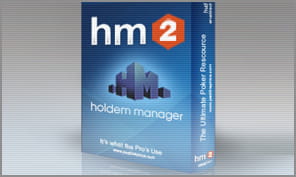
Any tool or service that shares hole card data with other players or services.Any tool or service that delays a player’s decision by either a specific or randomised amount of time.Any tool or service that offers real-time advice on what action to take through reading of the current game state (a ‘bot’).For example, ‘auto-folders’ and tools that randomise the size of bets are prohibited. A human must decide what action to take and the exact relative size of any bet or raise. Any tool or service that plays without human intervention (a ‘bot’) or reduces the requirement of a human to make decisions.A hotkey that bets a randomised amount between half and three quarters of the pot is prohibited. For example, a hotkey that bets half the pot is permitted. The player must decide what action to take and the exact relative size of any bet or raise, with the macro or hotkey merely executing this decision. Macros and Hotkey programs for gameplay efficiency that do not reduce the requirement of a player having to make a decision.There are also feature limitations of tools and services displaying statistics in-game, such as not being able to automatically change displayed statistics based on game state or opponent tendencies. Furthermore, there are qualitative limitations on any statistics displayed in-game, such as not being able to be split based on card values. Tools or services that monitor and display numerical-based statistics in-game, but make use of only information that you have accumulated through your own play.Reference material that is static and basic in nature, such as simple table-based starting hand charts advising on what hands to play or not in unopened pots.Tools and services that simply report basic game state information, such as pot odds or absolute hand strength.Our policy groups tools and services into three categories: However, knowledgeable people will disagree over what is appropriate and what is not. We encourage feedback from our customers and take constructive feedback into consideration in future updates to our policy. It is designed to be an appropriate compromise between allowing the use of tools and services that might enhance the playing and learning experience for the user, while prohibiting tools and services that give the user an unfair advantage. The policy we have developed over the years follows thorough discussions internally and with poker experts, including our team of professionals. We believe this gives that player an unfair advantage against others at their table. A player with access to such a database can call up detailed information about their opponents without ever playing against those opponents themselves. For example, there are people building databases with profiles of many players online, and they are sharing access to these databases. In between those two extremes are many tools - some of which we consider to be too close to cheating.

At the other end of the spectrum, they can use a tool that informs them exactly what action to take in real-time. Both of these techniques are clearly appropriate.

For instance, they can play a lot and gain experience, or they can read a book about poker. There are many things that a player can do to improve their chances in a poker game. However, we think that some go beyond what we consider acceptable as an aid to playing online. We think it is okay for players to use some of these tools and services. As online poker has grown in popularity, people have developed tools and web-based services to help them play better online.


 0 kommentar(er)
0 kommentar(er)
